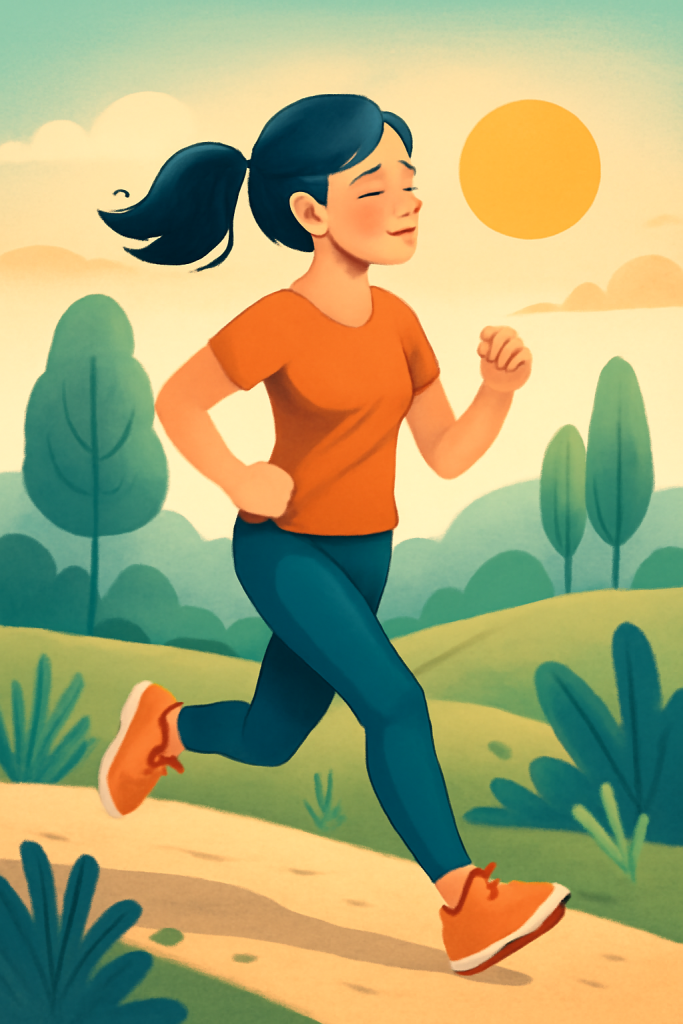Movement affects mood in significant ways, influencing both emotional and mental well-being. Understanding how movement affects mood empowers individuals to incorporate physical activity into daily life for stress relief, improved focus, and reduced symptoms of anxiety and depression. This article explores current science and practical strategies on how movement affects mood, backed by recent research.

How Movement Affects Mood: The Science Behind Emotional Benefits
Movement affects mood by triggering powerful brain chemical changes. When you move, your body releases endorphins—natural painkillers that create feelings of euphoria. Alongside, neurotransmitters like serotonin and dopamine regulate your emotions, lifting mood and reducing anxiety. Even moderate movement can significantly improve mental health outcomes.
A landmark 2023 meta-analysis published in The Lancet Psychiatry found that physical activity lowers depression risk by a striking 25%, proving how profoundly movement affects mood (Schuch et al. 2023). This means simple activity routines can serve as a powerful, low-cost tool to combat one of the most common mental health disorders worldwide.
Emerging Trends: How Movement Affects Mood in New Ways
Micro-Movements: Small Breaks, Big Mood Shifts
For those stuck at desks all day, breaking sedentary periods with brief micro-movement breaks can drastically improve mood and reduce stress levels. New research shows these tiny bursts refresh the brain, helping office workers stay calm and focused (Thøgersen-Ntoumani et al. 2024).
Mindful Movement: Emotional Balance Meets Physical Activity
Mindful movement practices such as yoga and tai chi combine gentle exercise with focused attention, amplifying mood-boosting effects. These techniques reduce anxiety and foster emotional stability, making them ideal for anyone seeking mental clarity and peace (Gotink et al. 2023).
Digital Fitness: Tech That Moves Your Mood
Technology is revolutionizing how movement affects mood through digital fitness platforms. Virtual workouts and app-based programs now offer easy access to guided, mood-enhancing physical activity from anywhere, supporting mental health on the go (Global Wellness Institute 2024).
Practical Tips to Harness How Movement Affects Mood Every Day
- Consistency is King: Aim for 30 minutes of moderate activity most days—walk, cycle, swim, or dance. Split into smaller sessions if needed.
- Micro-Movement Breaks: Set hourly reminders to stand, stretch, or walk for a few minutes to reset your mood during sedentary work.
- Try Mindful Movement: Incorporate yoga, tai chi, or slow walking focusing on breath and body awareness for emotional benefits.
- Use Tech for Motivation: Download fitness apps or join virtual classes to stay engaged and accountable.
- Combine With Nature: Outdoor movement amplifies mood benefits through sunlight and fresh air exposure.
Why It’s Critical to Understand How Movement Affects Mood
Movement’s impact on mood is multifaceted: biochemical releases, enhanced brain plasticity, and psychological relief from stress and negative thinking. This triple-action makes physical activity a cornerstone recommendation for mental health professionals worldwide.
Incorporating movement into daily life isn’t just about fitness—it’s a potent, accessible tool to safeguard emotional well-being, improve focus, and reduce symptoms of anxiety and depression. The best part? It’s virtually free and available to everyone.
Conclusion: Unlock Your Best Mood with Movement Today
Understanding how movement affects mood means tapping into a natural, effective way to improve mental health. From micro-movement breaks to mindful exercises, your body’s motion is a gateway to lasting emotional balance. Don’t wait—start moving and feel the difference in your mind and mood.
References
- Schuch, F.B., Stubbs, B., Meyer, J., et al. (2023). Physical activity and incident depression: a systematic review and meta-analysis of prospective cohort studies. The Lancet Psychiatry, 10(3), pp. 177–188. doi: 10.1016/S2215-0366(22)00396-9 (Schuch et al. 2023)
- Thøgersen-Ntoumani, C., et al. (2024). The effects of micro-movement breaks on mood and stress in office workers: a randomized controlled trial. Frontiers in Psychology, 15, article 1102376. doi: 10.3389/fpsyg.2024.1102376 (Thøgersen-Ntoumani et al. 2024)
- Gotink, R.A., Chu, P., Busschbach, J.J., et al. (2023). Standardised mindfulness-based interventions in healthcare: an overview of systematic reviews and meta-analyses of RCTs. Psychological Medicine, 53(4), pp. 655–668. doi: 10.1017/S0033291722001465 (Gotink et al. 2023)
- Global Wellness Institute (2024). Digital Fitness Trends 2024 Report. Available at: https://globalwellnessinstitute.org (Accessed: 20 May 2025) (Global Wellness Institute 2024)






